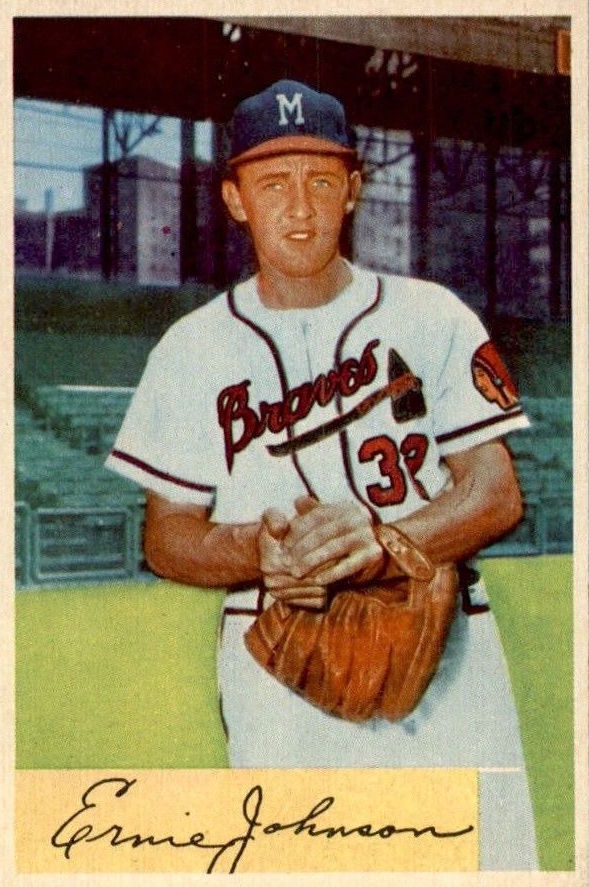Ernie Johnson Sr, a prominent figure in the world of sports journalism, has left an indelible mark on the industry with his groundbreaking work. As one of the first African American sportscasters, he paved the way for future generations and challenged societal norms. His career is a testament to perseverance, talent, and dedication to excellence in journalism.
Born in the early 20th century, Ernie Johnson Sr's journey through the world of sports broadcasting was not without its challenges. In an era where racial segregation was rampant, he broke barriers and became a voice that resonated with audiences across the United States. His achievements have been celebrated as milestones in the history of media representation.
This article delves into the life, career, and legacy of Ernie Johnson Sr, exploring his contributions to journalism and the broader impact of his work on society. We will examine his professional journey, his influence on the industry, and how his story continues to inspire journalists today.
Read also:Next Friday Characters A Comprehensive Dive Into The Iconic Movie Cast
Table of Contents
- Biography of Ernie Johnson Sr
- Early Life and Education
- Career Beginnings
- Breaking Barriers in Broadcasting
- Impact on the Journalism Industry
- Personal Life and Family
- Legacy and Recognition
- Challenges Faced in the Industry
- Influence on Modern Journalism
- Conclusion
Biography of Ernie Johnson Sr
Ernie Johnson Sr was born on February 25, 1918, in St. Louis, Missouri. His full name was Ernest Albert Johnson Sr, and he would go on to become one of the most respected sportscasters in American history. Below is a summary of his key biographical details:
| Full Name | Ernest Albert Johnson Sr |
|---|---|
| Date of Birth | February 25, 1918 |
| Place of Birth | St. Louis, Missouri |
| Profession | Sportscaster, Journalist |
| Years Active | 1940s–1980s |
| Legacy | Pioneer in African American sports journalism |
Early Life and Education
Ernie Johnson Sr grew up in a time when opportunities for African Americans were severely limited. Despite these challenges, he excelled academically and developed a passion for sports from a young age. After completing high school, he attended Lincoln University in Jefferson City, Missouri, where he played football and honed his skills in public speaking.
His education laid the foundation for his future career in journalism. During his college years, he became involved in campus radio, which sparked his interest in broadcasting. This early exposure to media would prove invaluable as he pursued his professional ambitions.
Career Beginnings
Ernie Johnson Sr began his career in the late 1940s, working for small radio stations in Missouri. His smooth voice, articulate delivery, and deep knowledge of sports quickly set him apart from his peers. In 1950, he made history by becoming one of the first African American sportscasters to broadcast Major League Baseball games, working for the St. Louis Browns.
This achievement was significant not only because of the racial barriers he broke but also because it demonstrated his ability to excel in a highly competitive field. His work ethic and professionalism earned him respect from colleagues and fans alike.
Breaking Barriers in Broadcasting
Ernie Johnson Sr's career was marked by numerous milestones that challenged racial segregation in the media industry. At a time when African Americans were often excluded from mainstream broadcasting, he defied expectations and became a prominent figure in sports journalism.
Read also:Zendaya Siblings Exploring The Lives And Bonds Of The Family
- In 1950, he became the first African American to broadcast Major League Baseball games.
- In the 1960s, he worked for NBC, where he covered various sports events, including the Olympics.
- He was a pioneer in advocating for diversity and inclusion in media, using his platform to highlight issues of racial equality.
His efforts inspired countless aspiring journalists and helped pave the way for greater representation in the industry.
Impact on the Journalism Industry
Ernie Johnson Sr's influence on journalism extends far beyond his own career. He demonstrated that talent and professionalism should be the primary criteria for success, regardless of race or background. His work challenged stereotypes and encouraged media organizations to embrace diversity.
Today, many journalists credit Ernie Johnson Sr with inspiring them to pursue careers in sports broadcasting. His legacy lives on through the numerous awards and honors that recognize his contributions to the field.
Personal Life and Family
Ernie Johnson Sr was married to Mildred Johnson, and together they had several children, including Ernie Johnson Jr, who followed in his father's footsteps as a successful sportscaster. His family played a vital role in supporting his career and provided him with the encouragement he needed to overcome obstacles.
In addition to his professional achievements, Ernie Johnson Sr was known for his kindness, humility, and dedication to his community. He was actively involved in charitable organizations and used his platform to give back to those in need.
Legacy and Recognition
Ernie Johnson Sr's contributions to journalism have been recognized with numerous awards and honors. In 1986, he was inducted into the National Sportscasters and Sportswriters Association Hall of Fame, a testament to his lasting impact on the industry. His pioneering work continues to inspire journalists today, particularly those from underrepresented communities.
His son, Ernie Johnson Jr, has carried on the family legacy, becoming a well-respected sportscaster in his own right. The Johnson family's dedication to excellence in journalism serves as a powerful reminder of the importance of perseverance and integrity in the media.
Challenges Faced in the Industry
Throughout his career, Ernie Johnson Sr faced numerous challenges due to racial discrimination. In the 1950s and 1960s, many media organizations were reluctant to hire African American journalists, and those who were hired often faced hostility from colleagues and audiences alike. Despite these obstacles, he remained steadfast in his commitment to excellence.
His ability to overcome adversity and achieve success in a hostile environment is a testament to his resilience and determination. He used his experiences as a platform to advocate for change and encourage others to pursue their dreams, regardless of the challenges they might face.
Influence on Modern Journalism
Ernie Johnson Sr's influence on modern journalism cannot be overstated. His groundbreaking work paved the way for greater diversity and inclusion in the media industry. Today, many journalists from underrepresented communities credit him with inspiring them to pursue careers in sports broadcasting and other fields.
His legacy is evident in the increasing representation of African Americans and other minorities in journalism. Media organizations have made significant strides in promoting diversity and inclusion, although there is still much work to be done. Ernie Johnson Sr's story serves as a powerful reminder of the importance of breaking barriers and challenging societal norms.
Conclusion
Ernie Johnson Sr's career as a sportscaster and journalist was marked by groundbreaking achievements and a commitment to excellence. As one of the first African American sportscasters, he challenged racial barriers and inspired generations of journalists to follow in his footsteps. His legacy continues to influence the media industry today, promoting diversity and inclusion in journalism.
We encourage readers to share this article and explore the life and work of Ernie Johnson Sr further. By learning about his contributions to journalism, we can gain a deeper appreciation for the challenges he faced and the impact he had on the industry. Don't forget to check out other articles on our site for more fascinating stories about influential figures in history.
Data Source: National Sportscasters and Sportswriters Association, Lincoln University Archives, NBC News Archives


